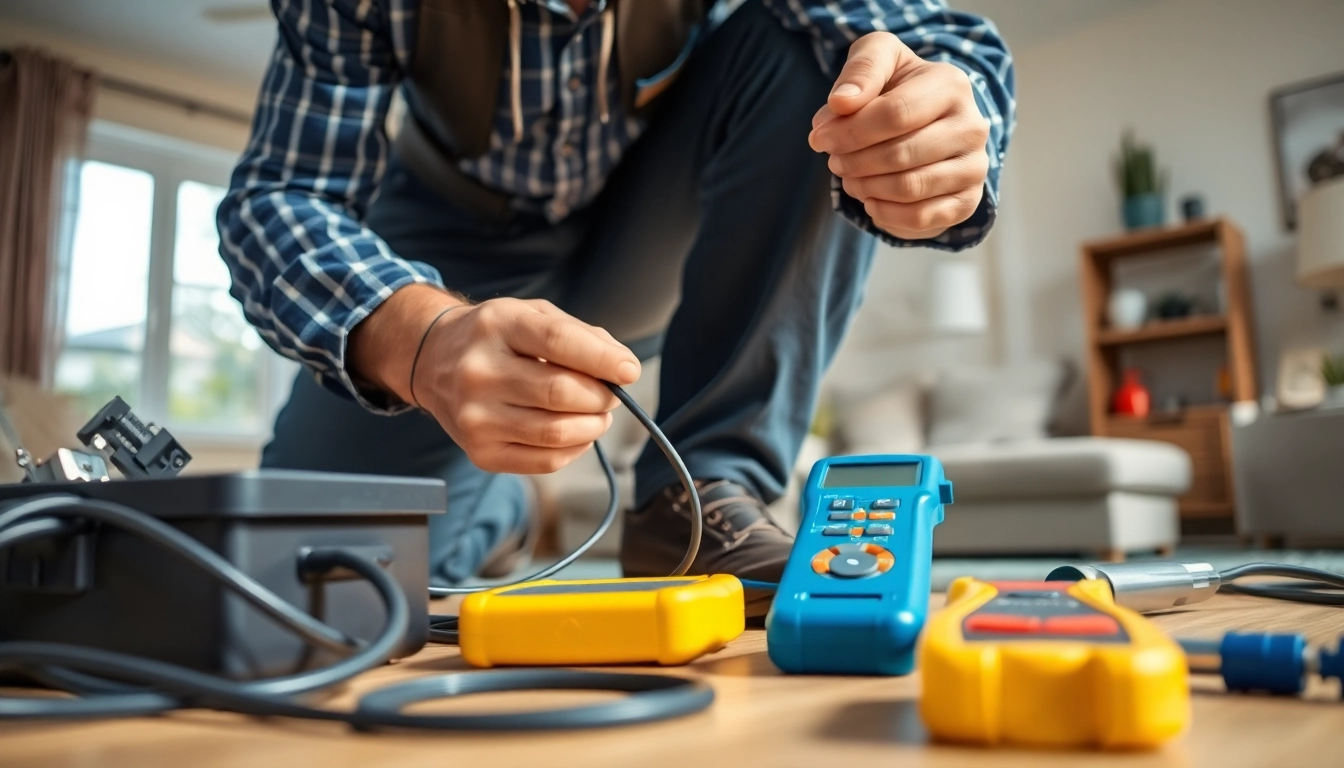Understanding the Role of a Relationship Coach
In today’s fast-paced world, many individuals find themselves navigating the complexities of personal relationships. This is where a relationship coach comes in, serving as a guide to help clients forge deeper connections with their partners, friends, and even themselves. A relationship coach specializes in facilitating personal growth and relationship enhancement, offering tools and strategies to improve communication, resolve conflicts, and set meaningful goals. Relationship coaches work with a variety of clients, from those seeking assistance in romantic partnerships to individuals looking to enhance their interpersonal skills in various aspects of life.
What Does a Relationship Coach Do?
A relationship coach focuses on empowering individuals to make meaningful changes in their relational dynamics. They offer personalized guidance tailored to the unique needs of each client. While the functions of a relationship coach can vary widely, they typically include:
- Goal Setting: Helping clients set clear, actionable relationship goals based on their unique situations and aspirations.
- Skill Development: Teaching communication and conflict resolution skills that enable clients to navigate relationship challenges more effectively.
- Support and Accountability: Providing ongoing support to help clients remain dedicated to their growth journey while holding them accountable for their progress.
- Perspective Sharing: Offering an objective viewpoint to help clients see their relationship challenges in a new light.
Benefits of Working with a Relationship Coach
The decision to work with a relationship coach can bring numerous benefits:
- Improved Communication: Clients often learn how to express their feelings and needs more clearly, enhancing mutual understanding in their relationships.
- Conflict Resolution: Coaches teach clients effective strategies to address disagreements and issues constructively without damaging the relationship.
- Increased Self-Awareness: Through coaching sessions, clients gain insights into their behaviors, emotional triggers, and relationship patterns.
- Confidence Boost: As clients work through their challenges, they often experience a surge in self-esteem and confidence, both in their relationships and personal lives.
- Stronger Connections: Clients can deepen their existing relationships or more successfully forge new connections as they apply their newly acquired skills.
Key Skills to Look for in a Relationship Coach
When selecting a relationship coach, it’s important to find someone who possesses certain skills and qualities:
- Empathy: Coaches should demonstrate the ability to understand and share the feelings of their clients, creating a safe and supportive environment.
- Active Listening: Effective coaches listen attentively to their clients, validating their feelings and concerns.
- Communication Skills: The ability to convey complex ideas simply and effectively is crucial, as is the ability to provide constructive feedback.
- Problem-Solving Skills: A good coach should help clients identify issues and brainstorm creative solutions.
- Flexibility: Every client is unique; effective coaches adapt their approach based on individual client needs and preferences.
Identifying Your Relationship Needs
Understanding your own relationship needs is a prerequisite for effective coaching. Before embarking on your journey with a coach, it’s essential to have a clear grasp of your current situations and desires.
Assessing Your Current Relationship Situation
Take time to reflect on your current relationships. Consider conducting an honest assessment of what’s working and what’s not. Questions to explore include:
- What specific challenges are you facing in your relationships?
- How do you currently communicate your needs or concerns?
- What are the repeating patterns in your relational dynamics?
- What are your greatest fears when it comes to relationships?
Common Relationship Challenges Addressed by Coaches
Relationship coaches commonly help individuals address various challenges. Some of the most prevalent issues include:
- Communication Issues: Many clients struggle with articulating their feelings, leading to misunderstandings or unresolved conflicts.
- Trust Problems: The inability to trust can hinder relationship success, and coaches often work through these trust-related concerns.
- Intimacy Concerns: Whether physical or emotional, intimacy can be a significant barrier, and coaches can guide clients in nurturing closer connections.
- Life Transitions: Changes in life circumstances (such as moving, career shifts, or having children) can impact relationships, requiring adaptive strategies.
- Unresolved Past Issues: Coaches may help clients confront and work through issues from past relationships that impact their current dynamics.
Personal Goals: What Do You Want to Achieve?
Before beginning coaching, take time to define your personal goals. Consider the following:
- Are you hoping to rekindle a current relationship or establish a new one?
- Do you aspire for more emotional support and understanding in your connections?
- Are there specific tools or strategies you want to learn?
- What does a successful relationship look like to you?
How to Choose the Right Relationship Coach
Finding a relationship coach that fits your needs can feel overwhelming, but a systematic approach can make the process simpler.
Researching Potential Coaches
Begin your search by researching potential coaches online. Look for:
- Coaches who specialize in your specific relationship concerns.
- Certifications and credentials that ensure professionalism and expertise.
- Reviews and testimonials from past clients to gauge effectiveness.
- Any content they offer (articles, videos, webinars) that may demonstrate their approach and philosophy.
Questions to Ask Before Committing
Before committing to a relationship coach, it’s crucial to ask the right questions, such as:
- What is your coaching philosophy and approach?
- How do you tailor your coaching to meet individual client needs?
- What can I expect from our sessions?
- How do you measure success in coaching?
Understanding Different Coaching Styles
Coaches may adopt various styles, which can range from directive (coach-led) to non-directive (client-led). Understanding which approach resonates with you can facilitate a better coaching relationship:
- Directive Coaching: This style involves the coach often taking the lead, providing structured activities and feedback.
- Non-Directive Coaching: The coach will guide clients in uncovering their own thoughts and solutions, fostering self-discovery.
- Creative Approaches: Some coaches may incorporate tools like visualization, role plays, or psychometric assessments to aid learning.
Measuring the Success of Your Coaching Experience
Once you begin your coaching, it’s essential to keep track of your progress and ensure that you’re meeting your goals.
Setting Milestones and Goals
Establish milestones to help measure your progress. These could include:
- Improving communication skills by implementing new techniques discussed in coaching.
- Successfully navigating a specific conflict by applying learned strategies.
- Achieving a personal goal such as opening up emotionally or reestablishing trust.
Evaluating Progress Over Time
Regularly evaluate your development. Keep a journal where you record your feelings, insights, and experiences related to your coaching sessions. This can help illuminate patterns of growth or areas needing further focus.
Client Testimonials and Success Stories
Pay attention to testimonials and success stories from other clients. Hearing about positive transformations can inspire you and reinforce your commitment to the coaching process. If possible, ask your coach to provide you with references of clients who experienced similar goals.
Taking the Next Steps in Relationship Coaching
As you enter into relationship coaching, remain proactive about your growth and fully engage in the process.
Preparing for Your First Session
As you prepare for your first coaching session, consider jotting down key issues and goals you want to discuss. Being organized will help you make the most of your time spent with the coach. You might also want to reflect on your expectations regarding the coaching relationship.
Maintaining a Growth Mindset
Coaching is about growth—embracing both successes and setbacks. A growth mindset encourages you to view challenges as opportunities for learning rather than obstacles. Here are a few tips for maintaining this mindset:
- Stay open to feedback and new perspectives.
- Celebrate small victories rather than only focusing on larger goals.
- Remain persistent, even when facing difficulties in personal growth.
When to Consider Additional Resources
There may be times when additional resources could benefit your coaching journey. These may include:
- Books or workshops related to relationship development.
- Therapists for deeper psychological concerns.
- Support groups where you can share experiences with others.
Above all, prioritize your growth journey and utilize your relationship coach as an integral part of that progression.



